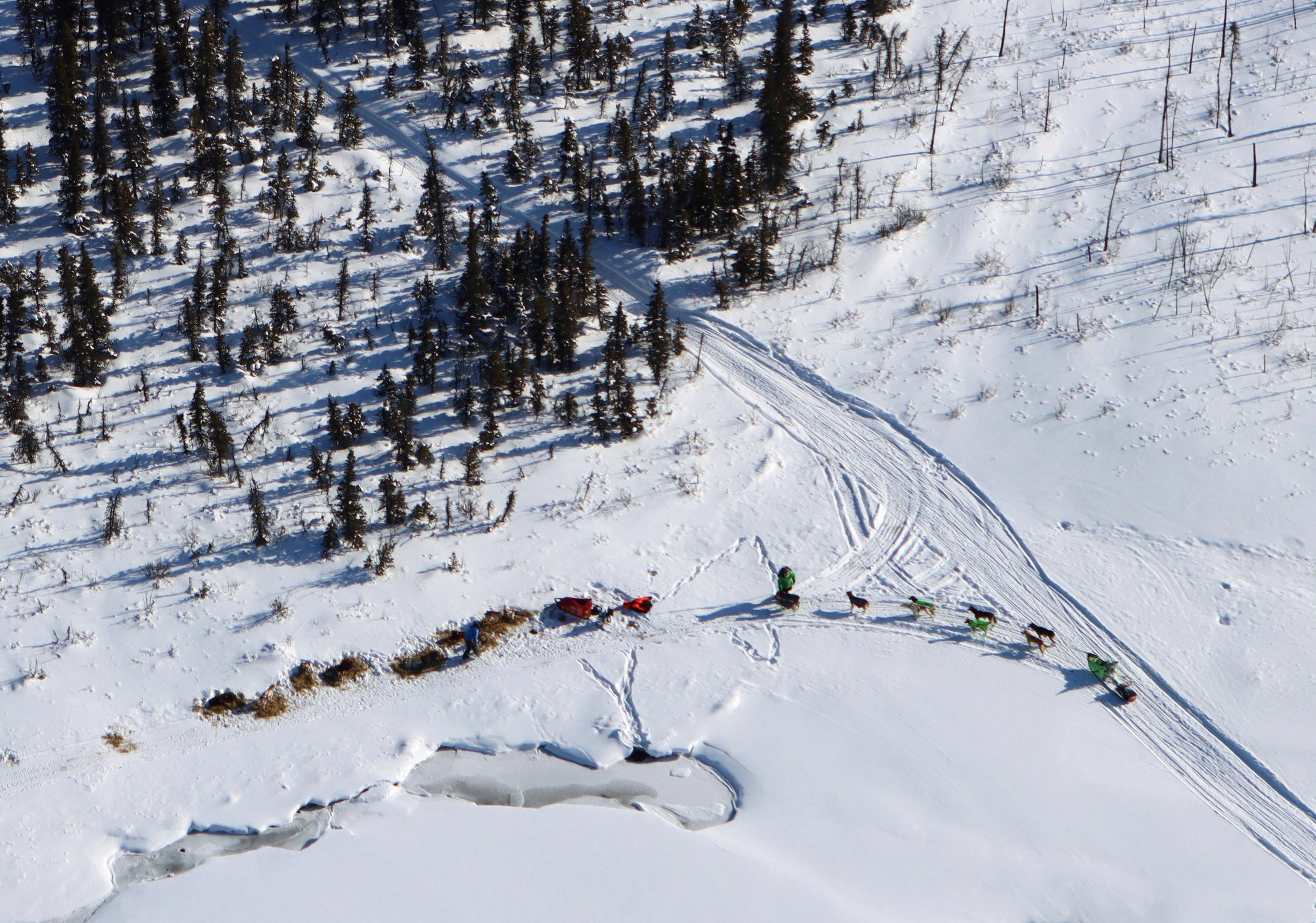Dallas Seavey on the cusp of 5th title with Iditarod lead
Dallas Seavey is leading the Iditarod Trail Sled Dog Race on Sunday, and has positioned himself for a record-tying fifth title

Dallas Seavey was leading the Iditarod on Sunday, positioning himself to tie one other musher for the most wins ever in the world’s most famous sled dog race.
Seavey, a four-time winner, was the first musher in this year’s Iditarod Trail Sled Dog Race to reach the last checkpoint, in the community of Skwentna. He checked in just before 1 p.m. Sunday.
All mushers must take a mandatory eight-hour rest period before getting back on the trail for the last 67 miles (108 kilometers).
The winner is expected to cross the finish line near the community of Willow, Alaska, sometime early Monday morning.
Seavey was leading second place musher Aaron Burmeister, a Nome native, by about an hour, according to GPS tracking data on the race's website
Seavey had a remarkable run, winning his four championships over five years. The last title came in 2016. The next year, he finished second, behind his father, Mitch Seavey.
After that 2017 race, Iditarod officials said four of Dallas Seavey’s dogs tested positive for a banned opioid painkiller. He adamantly denied giving his dogs the painkillers. The next year, the Iditarod reversed its decision and cleared Seavey, but he took time off from the race.
Dallas Seavey competed in sled dog races in Norway and became a television color commentator for the sport.
He always said he would one day return to the Iditarod, and decided this was the year.
At only age 34, Seavey has been considered by many to someday match and perhaps surpass the win total of the race’s most decorated musher, Rick Swenson who collected five championships between 1977-1991. He's known as the “King of the Iditarod.”
“Five would be awesome,” Seavey told The Associated Press before the start of this year’s pandemic-shortened race. “I’m going to do my best to win this. If I get beat, which is a pretty likely outcome ... whoever beats me is going to earn it.”
The coronavirus pandemic didn’t stop the Iditarod from starting March 7 with 46 mushers. During the race, mushers have bypassed most rural Alaska villages that normally serve as checkpoints as a safety precaution, leaving the competitors to sleep in tent camps outside towns or under the stars in temperatures that have reached minus 55 degrees (minus 48 C).
Since then, eight have scratched including fan favorite Aliy Zirkle, who was injured in a fall. Another musher, Gunnar Johnson, was withdrawn after he tested for positive for COVID-19. That leaves 37 teams on the trail.
The race route was changed and shortened this year, to about 850 miles (1,368 kilometers). Mushers started the race near Willow, about 50 miles (80 kilometers) north of Anchorage From there, they traveled to the ghost town of Iditarod and then turned back around to finish in Willow.
A normal race is about 1,000 miles (1,609-kilometer), and takes mushers across the wilds of Alaska from Willow to the finish line in Nome, on the state’s Bering Sea coast.
Bookmark popover
Removed from bookmarks